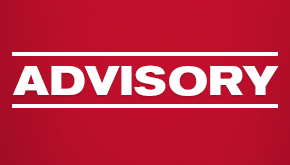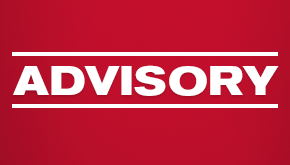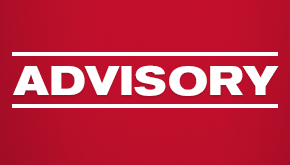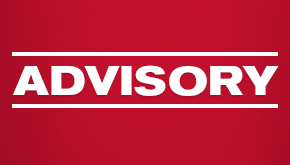AT Health Law Beat, July 2023
Florida Man Convicted of $54 Million Bribery and Kickback Scheme Involving Fraudulent Prescriptions
On Friday, June 16, 2023, the U.S. Department of Justice announced that David Bryan Copeland was recently convicted by a federal jury in Florida for his role in a $54 million bribery and kickback scheme involving TRICARE, the health benefits program for active duty and retired service members and their dependents.
Court documents show that Copeland, 55, was a part owner and senior sales manager at Florida Pharmacy Solutions (FPS), a Florida-based pharmacy that specialized in compounded prescription drugs. Copeland and his accomplices were convicted of defrauding TRICARE by engaging in a practice known as “test billing” to develop the most expensive combination of compounded drugs to maximize TRICARE reimbursements. Test billing is generally some employed form of improper billing, either for medically unnecessary services, or deemed “experimental,” as opposed to having an assignable billing code associated therewith. Here, Copeland and his accomplices targeted physicians who treated TRICARE beneficiaries and offered bribes including lavish hunting trips and expensive dinners, and other kickbacks in exchange for the referral of prescriptions to FPS. The group used blanket letters of authorization so FPS could modify the prescription components and boost profits.
When TRICARE issued reimbursements for the prescriptions, Copeland and his sales representatives were paid a percentage of the payment equaling millions of dollars in kickbacks. Copeland set up various companies to facilitate the kickbacks and receive funnel payments. Between 2012 and 2015, FPS billed TRICARE over $54 million.
Copeland was convicted of two counts of soliciting and receiving illegal health care kickbacks and three counts of offering and paying illegal health care kickbacks. He was acquitted of conspiracy to defraud the United States and receiving illegal health care kickbacks. He faces a maximum penalty of 10 years in prison for each count. His sentencing is scheduled for Sept 14. Per the DOJ’s press release, Copeland’s two accomplices, James Wesley Moss, the former chief executive officer of FPS, and Michael Gordon, a former FPS sales representative, previously pleaded guilty for their roles in the scheme and are awaiting sentencing.
AT Takeaways:
The government continues to closely scrutinize test billing arrangements, even as we move beyond the COVID-19 pandemic and the subsequent end of the Public Health Emergency. The government continues to refine its sophistication level when tracking and monitoring providers suspected of test billing. As such, providers should be extra diligent in documenting the medical necessity of services and billing under proper codes for testing beneficiaries of government health programs.
Further, the government is remaining firm on its enforcement of what are deemed to be lavish gifts to increase orders of certain services by certain providers. Such questionable gifts can include trips, sporting event and/or concert tickets, meals, or alcohol.
Justice Department Announces Nationwide Coordinated Law Enforcement Action to Combat COVID-19 Health Care Fraud
The Department of Justice (DOJ) remains scrutinous of health care arrangements made during and coming out of the COVID-19 pandemic. On April 20, 2023, the DOJ announced criminal charges against 18 defendants in nine federal districts across the United States for their alleged participation in various forms of COVID-19 fraud, allegedly amounting to nearly $500 million in COVID-19-related false billings to various federal health care programs.
Attorney General Merrick B. Garland stated, “This unprecedented enforcement action against defendants across the country makes clear that the Department is using every available resource to combat and prevent COVID-19 related fraud and safeguard the integrity of taxpayer-funded programs.” Assistant Director Luis Quesada of the FBI’s Criminal Investigative Decision further stated, “The charges announced today demonstrate the FBI’s, along with its partner’s, commitment to ensuring that COVID-19 health care fraud does not go unpunished.”
The announcement also included first-of-their-kind charges against suppliers of COVID-19 over-the-counter tests, which Medicare began to cover in April 2022, for those who requested them. In the Middle District of Florida, a doctor and a marketer were charged for allegedly unlawfully purchasing Medicare beneficiary ID numbers and shipping over-the-counter tests to beneficiaries all over the country who never requested the tests creating a fraudulent $8.4 million claim to Medicare.
The law enforcement action also included charges against manufacturers and distributors of fake COVID-19 vaccination cards. In the Eastern District of New York, three medical professionals were charged for allegedly distributing nearly 2,700 forged COVID-19 vaccination record cards. There, the defendants allegedly destroyed vials of the vaccine instead of administering them and issued the cards to unvaccinated people. And in California, a lab owner was charged for allegedly submitting over $358 million in false and fraudulent claims to Medicare, the Health Resources and Services Administration (HRSA) and a private insurance company for laboratory testing. There, the lab contracted to perform COVID-19 screening testing for nursing homes and other facilities with vulnerable elderly populations, as well as for education systems in their respective primary and secondary schools. To increase profits, however, the defendant allegedly added fraudulent claims for respiratory pathogen panel tests even though the ordering providers and facility administrators did not request or need them.
AT Takeaways:
While the COVID-19 pandemic and related Public Health Emergency are now over, enforcement of fraud and abuse conducted during the crux of the pandemic is remaining steady. Providers should continue to expect a potential for increased audits and scrutiny of billing, compensation, payment and other similar arrangements.
FTC, Several States Continue with Trend of Banning Physician Noncompetes
The window of legality of noncompete clauses within physician employment agreements is slowly closing on providers and entities that employ physicians. On Jan. 5, the Federal Trade Commission (FTC) proposed a rule that would prohibit employment contract clauses which prevent employees or contractors from working in a similar role for a competing business. Such contracts typically bar people from working within a certain geographic area and for several years after their employment ends.
Not unexpectedly, the proposed rule garnered a plethora of public interest — to the tune of approximately 27,000 public comments, according to Bloomberg Law. The significant number of comments to sift through, coupled with threats of lawsuits to challenge the permissibility of the proposed rule from groups like the U.S. Chamber of Commerce, led to the FTC’s announcement of a 16-month delay in voting on a final form of the proposed rule, until April 2024.
In the meantime, several states have picked up the slack of the FTC proposed rule, electing to pass state-level noncompete clause bans. Specifically, Minnesota passed a law banning noncompetes last year; that rule went into effect on July 1, 2023. Similarly, Washington, D.C.’s ban went into effect this year, rendering unenforceable noncompete provisions for those earning less than $150,000 a year, or for medical specialists making less than $250,000 per year. Further still, since 2019, at least nine other states, including Colorado, Illinois and Oregon, have passed laws limiting noncompete agreements to higher earners. Three states have had long-standing noncompete bans in place: California (since 1872), North Dakota (since 1865) and Oklahoma (since 1890). Finally, Indiana also has a noncompete ban that went into effect on July 1, 2023, and New York’s legislature passed a noncompete ban bill at the end of the legislative session. That bill has been sent to N.Y. Gov. Kathy Hochul’s desk for signature.
AT Takeaways:
This is expected to remain a hot topic, at both the state and federal levels. We can likely expect to see more states pass variations of noncompete bans during the run up to the vote on the FTC’s Proposed Rule next April. Given the shifts in policy in this space, employers and providers should be mindful and cautious of any new or renewal agreements that contain such noncompete clauses, especially as applied to physicians.
It also remains to be seen whether the noncompete bans for physicians have a trickle-down effect, and whether such laws will also apply to other professionals, such as nurses. This is particularly timely and notable given the national trends of nurse shortages and nurse burnout rates.
New York Legislature Passes Bill Protecting Physicians Who Prescribe, Send Abortion Medication to Patients in States with Bans
On June 20, 2023, the New York state legislature took bold initiative, passing legislation that protects doctors who prescribe and send abortion pills to patients in states where abortion services are outlawed or restricted, such as Texas. N.Y. Gov. Kathy Hochul signed the bill into law on June 23.
The legislation — passed during a two-day special session, convening in late June — shields providers who prescribe abortion medication services via telemedicine. The bill also protects New York medical providers who are complying with their scope of practice, who offer telehealth services from facing professional discipline “solely for providing reproductive health services to patients residing in states where such services are illegal.”
Unsurprisingly, the bill faces resistance and is expected to be challenged on constitutional grounds, as several legislators in opposition questioned how the state could protect a medical provider from litigation if they provide abortion care to someone in a state where it's against the law. Assemblyman Andy Goodell, a Republican from Jamestown, went on record to voice his opposition, stating, “[t]his bill is astounding because it says a New Yorker using telehealth can violate another state’s criminal laws and do so with impunity, and that’s wrong.”
Proponents of the bill have countered that argument, signaling that this is in furtherance of a piece of legislation passed last year. That legislation blocked other states from prosecuting New York doctors who provide medical services that are legal in New York. To date, that law has not been challenged, let alone struck down.
AT Takeaways:
It remains to be seen whether litigation is filed to challenge the new telemedicine law in New York. Given the considerable uncertainty surrounding the legality and accessibility of abortion services — including telehealth visits and access to abortion-inducing medications — Armstrong Teasdale’s team of health lawyers expects to see continued efforts in states passing legislation, both authorizing and prohibiting physicians from providing medication and services. It remains unclear whether there will be legislation at the federal level as well.
Missouri, Other States Pass Legislation Adopting Rural Emergency Hospital Status
As of Jan. 1, 2023, certain rural and critical access hospitals can elect a new Medicare designation status as a Rural Emergency Hospital (REH). REHs are facilities that convert from either a Critical Access Hospital (CAH) or a rural hospital (or one treated as such under section 1886(d)(8)(E) of the Social Security Act (the Act)) with 50 beds or less, and that agree not to provide acute care inpatient services, except for post-hospital extended care services furnished in a distinct part unit (DPU) licensed as a skilled-nursing facility (SNF). In addition to continuing to provide emergency services and observation care, a facility that converts to an REH can also provide additional outpatient services. Subject to the final rule, the conversion may be effected by submitting a Form CMS-855A (change of information application) rather than an initial enrollment application. This is aimed at expediting the conversion from CAH to REH.
REHs receive the following benefits:
- Payment of the Outpatient Prospective Payment System (OPPS) rate plus 5% for all outpatient department services provided to Medicare patients. Laboratory services, SNF services provided in a DPU, and other services that are not considered REH services will be paid under their respective fee schedules and will not receive an additional 5% payment.
- An additional monthly facility payment. The November 2022 final rule established that each REH will receive $272,866 per month in 2023. This additional payment will increase each year by the same percentage as the hospital market basket increase.
- Flexible staffing and services, to the extent permitted under state licensure laws.
- Access to technical assistance through the Rural Health Redesign Center’s Rural Emergency Hospital Technical Assistance Center.
Since its introduction, several states have passed laws adopting the status, a prerequisite before any facility within that state may apply to CMS for the status change. While a handful of states passed legislation prior to 2023, this year has seen a furious uptick in states passing laws to adopt the REH status, including Arkansas, Illinois, Indiana, Iowa, Kansas, Michigan, Mississippi, Missouri, Montana, Nevada, New Mexico, New York, Oklahoma and West Virginia.
AT Takeaways:
Eligible hospitals in states that have adopted REH status should consider whether the conversion to REH status makes sense from a business and financial standpoint. This includes cost-benefit analysis of the increased PPS rate and monthly stipend amounts versus 340B payments and other associated profits, as well as loss of revenues from inpatient beds.
Health Law Happenings at Armstrong Teasdale
- Jonathan Shulan and Wakaba Tessier achieved a successful outcome for one of our pharmacy clients before the Arkansas Board of Pharmacy. After a hearing to discuss our client’s alleged non-compliance with various Arkansas pharmacy rules, the client received a nominal penalty, which constituted a non-disciplinary action.
- Wakaba Tessier successfully counseled a hospital client on several clinical trial agreements.
- Jon Dalton and Brandon Hall have been counseling a growing health care system on federal fraud and abuse, billing and state corporate practice of medicine compliance during the system’s national buildout.
Meet the Team
Each quarter, we’ll introduce a few lawyers on our team, giving you the opportunity to learn more about their cross-disciplinary backgrounds and specific areas of focus aligned with health care.
- Jon Dalton, Partner: Has represented health care organizations and providers across the entire delivery spectrum for nearly 40 years. Combines extensive experience in government relations and administrative matters to assist clients in this highly regulated field. Serves as President and CEO of the firm’s public policy and lobbying subsidiary, AT Government Strategies, which supports clients across all industries and professions when considering issues and opportunities associated with federal, state and local government matters.
- Brandon Hall, Associate: Represents care systems, hospitals, physicians and other health care and life sciences organizations. Has significant background working on both state and federal health policy, and for a medical device startup prior to law school. Has experience counseling clients on a variety of regulatory compliance issues faced by health care entities, as well as hospital-physician alignment strategies. Chairs the Employee Benefits section of the Bar Association of Metropolitan St. Louis (BAMSL).
Welcome to AT
- Armstrong Teasdale Adds Corporate Partner Richard Lyons: Richard recently joined Armstrong Teasdale in New York. He focuses his practice on commercial transactions, commercial real estate, corporate dealings and health care. With clients ranging from small businesses to publicly traded international companies, he provides counsel on private transactions including commercial real estate purchases and sales, commercial leasing, stock/asset purchase agreements, service agreements, corporate and business formation, and governance. Richard’s health care experience encompasses drafting and negotiating consulting agreements, clinical and nonclinical research agreements, business formation/structure and general health care guidance relating to the pharmaceutical and medical device industries.






































